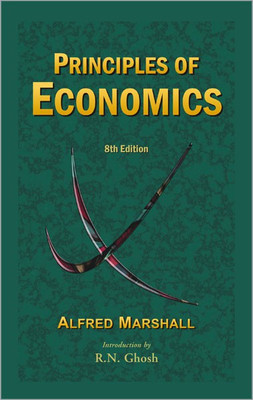Principles of Economics(English, Hardcover, Marshall Alfred)
Quick Overview
Product Price Comparison
Alfred Marshall dominated the world of Economics from about 1890 until his death in 1924. In his most important book, Principles of Economics, he emphasized that the price and output of a good are determined by both supply and demand: the two curves are like scissor blades that intersect at equilibrium. His primary concern in Principles was Microeconomics, the study of Individual markets and industries, and not the whole economy. Modern economists, trying to understand why the price of a good changes, still start by looking for factors that may have shifted demand or supplyŌĆöan approach they owe to Marshall. Marshall used the tools of classical mechanics, including the concept of optimization, to make Economics dynamic rather than static. Like neo-classical economists who have followed in his footsteps, Marshall took technology, market institutions, and peopleŌĆÖs preferences as given. However he believed that ŌĆ£the Mecca of the economist lies in economic biology rather than in economic dynamics.ŌĆØ The economy, according to him, is an evolutionary process in which technology, market institutions, and peopleŌĆÖs preferences evolve along with peopleŌĆÖs behaviour.


